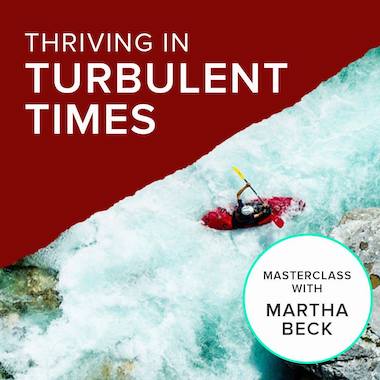Love in the Time of Covid-19

This is a moment we’ll remember for the rest of our lives.
Right now, all human beings are sharing the same terrible things: illness, horror, grief, fear, uncertainty. But we’re also sharing things like ingenuity, compassion, generosity, and courage.
It’s no exaggeration to say that our future as a species depends on what each of us chooses to share right now.
Things are bad, and they will probably get worse. But ironically, rising to challenges like this pandemic can make us better. If we can respond to this purposefully and bravely, we’ll one day look back to see that we used the worst of times to become the best versions of ourselves, individually and collectively.
Respect the exponential growth curve
I’ve been studying social change my whole adult life. I think about exponential growth curves a lot. Here’s a little story I learned in graduate school that helps illustrates how they work:
A man does a favor for a wealthy businessman. In return, he asks the tycoon to pay him one penny on the first day of the month, then double that amount on the second day, then double that on the third, and so on until the month ends. The rich man laughingly agrees—this will cost him almost nothing! By the end of the first week, the man’s daily pay is $1.28. After two weeks, it’s about $164.00. On the thirtieth day, the number is well over $10,000,000.00.
That’s how exponential growth curves—like pandemics—work.
This is why we must listen to the experts when they ask us to stop sharing things that may spread COVID-19. We’ve been advised not to share space, objects that may be contaminated, or the microorganisms that may ride on unwashed hands.
Notice that these measures are all bluntly physical. What’s called “social distancing” is actually physical distancing. It’s our best chance of overcoming the pandemic. But once we’ve done everything we can to avoid catching or spreading COVID-19, we can turn our attention to what we should share.
Connect in a time of disconnection
Isolation and distance are necessary to stop spreading COVID-19, but they’re devastating to our hearts, minds, and quality of life. We need each other now more than ever. What a blessing that we have the technology to connect while remaining physically remote.
As you disconnected physically, take active steps to connect remotely. Here are some ideas:
- Create set times and small rituals for connecting.
Each evening my family gathers for a beverage (these days it’s echinacea tea) and conversation. Later in the evening, we share a group call with a writer friend who is quarantined alone in a different city. We spend the time debriefing on the day and reading to each other. Such rituals can anchor us in patience and courage in confusing, scary times.
- Make your “social distancing” a conscious act of love toward yourself and others.
Honor the health care workers with signs that say “I came to work for you, please stay home for me.” Honor yourself by taking time to read good books, watch videos or television shows that make you happy, or walk in the park (studies show that just being near plants can improve our mental and physical health).
- Express gratitude (remotely).
Share and post messages on social media thanking not only doctors and nurses, but also grocery store workers, postal carriers, and other quiet heroes of the pandemic. Write emails of gratitude to people who have touched your life in positive ways. Gratitude has been shown to powerfully increase happiness for the people receiving it—and even more for the person expressing it.
- Grieve together.
The coming months will not be what any of us expected. To let go and move on, we must grieve our losses. That means feeling our own sadness, anger, and fear, and letting loved ones do the same. You don’t have to fix anyone’s feelings. You only need to witness their grief with compassion. By simply listening to others grieve and not needing them to feel anything but what they’re actually feeling, we can become powerful agents of emotional strength and healing.
- Laugh together
In his book Deep Survival, Laurence Gonzales writes that people who survive lethal situations tend to be the ones who joke and laugh, even when things look grim. You may have seen the recent story about a passenger on a commercial flight who started coughing, then shouted, “Don’t worry, everyone! It’s just tuberculosis!” If that offends you, I apologize. But I also urge you to go looking for your own style of gallows humor. Laughing, like crying, can bond us together and become a powerful coping mechanism.
- Look for ways to help someone, anyone.
Two weeks ago, trying to take precautions, I bought some surgical masks. My family is about to drop most of them off at a local hospital where supplies are short and the staff needs them more than we do. It’s a tiny offering, but it’s something.
More impressively, college junior Liam Elkind and his friend, Simone Policano, rallied 1,300 volunteers to deliver groceries to older people in New York City. They called themselves “Invisible Hands” because they never actually interacted with the people they helped—but their kindness had a huge emotional impact, as well as a logistical one.
Whatever you can do for anyone, do it. Acts of service and recognition are love in motion—even when we don’t physically meet.
Become a vector of healing
For years, we’ve been using the phrase “going viral” without really thinking about what it means. When an encouraging story or hilarious video reaches 100 people in a day, 5,000 people in a week, and millions of people in a month, we’re seeing an exponential growth curve fueled not by deadly infection, but by delight, appreciation and our innate need to share.
Fear has its own exponential growth curve, related to but independent from the spread of COVID-19. But so does kindness. So does courage. So do knowledge, generosity, and the inventiveness that creates solutions.
When we turn our focus away from (understandable) worry, focusing instead on how we can connect in love and service, we leave panic behind and become the best versions of ourselves. We find calm in chaos, like the thirteenth-century poet Hafiz who wrote,
Troubled? Then stay with me, for I am not.
… Even from the distance of a millennium,
I can reach out the flame from my heart into your life
and turn all that frightens you into holy ash.
The peace in these words is contagious—can’t you feel it? We can catch it, let it suffuse us, and then pass it on to others. As the coronavirus spreads, we can make love spread faster.
Humanity has never had such power to connect, and never had a stronger motivation. Eventually, though not soon enough, this pandemic will end. But our strengthened connections and our will to serve never have to.
Yes, we’ll remember this moment for the rest of our lives. Let us remember it as the time we took wise action, defeated the invisible foe, and emerged able to love each other more bravely and truly than ever before.
Martha is offering a free masterclass on March 31st: Thriving in Turbulent Times. If this article speaks to you, consider registering for more reframes and tools for dealing with this unique historical moment. Register here

This essay was featured in the March 22nd edition of The Sunday Paper. The Sunday Paper inspires hearts and minds to rise above the noise. To get The Sunday Paper delivered to your inbox each Sunday morning for free, click here to subscribe.

